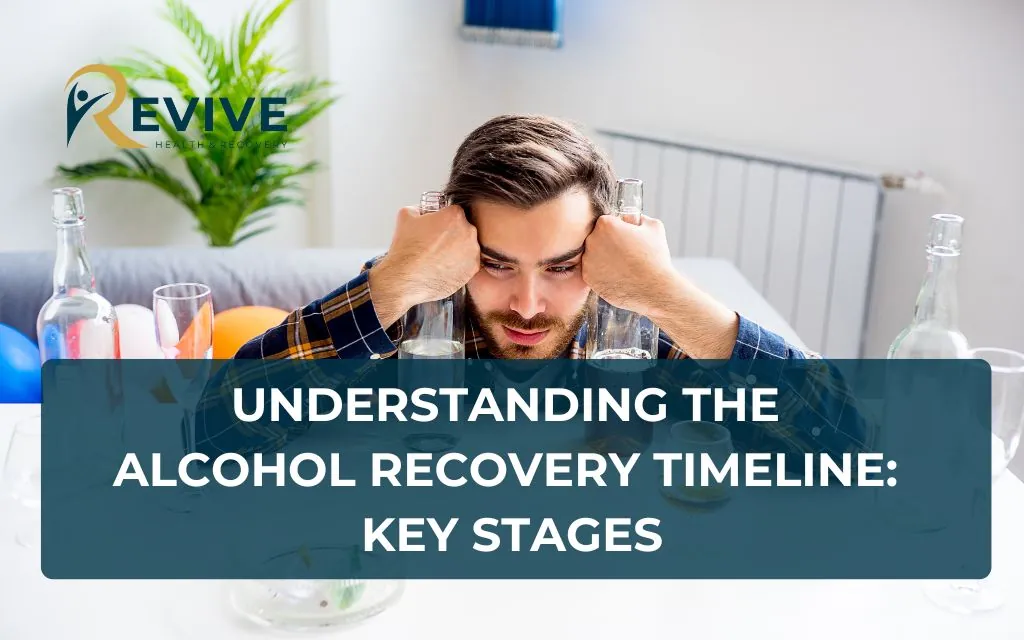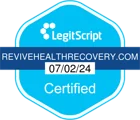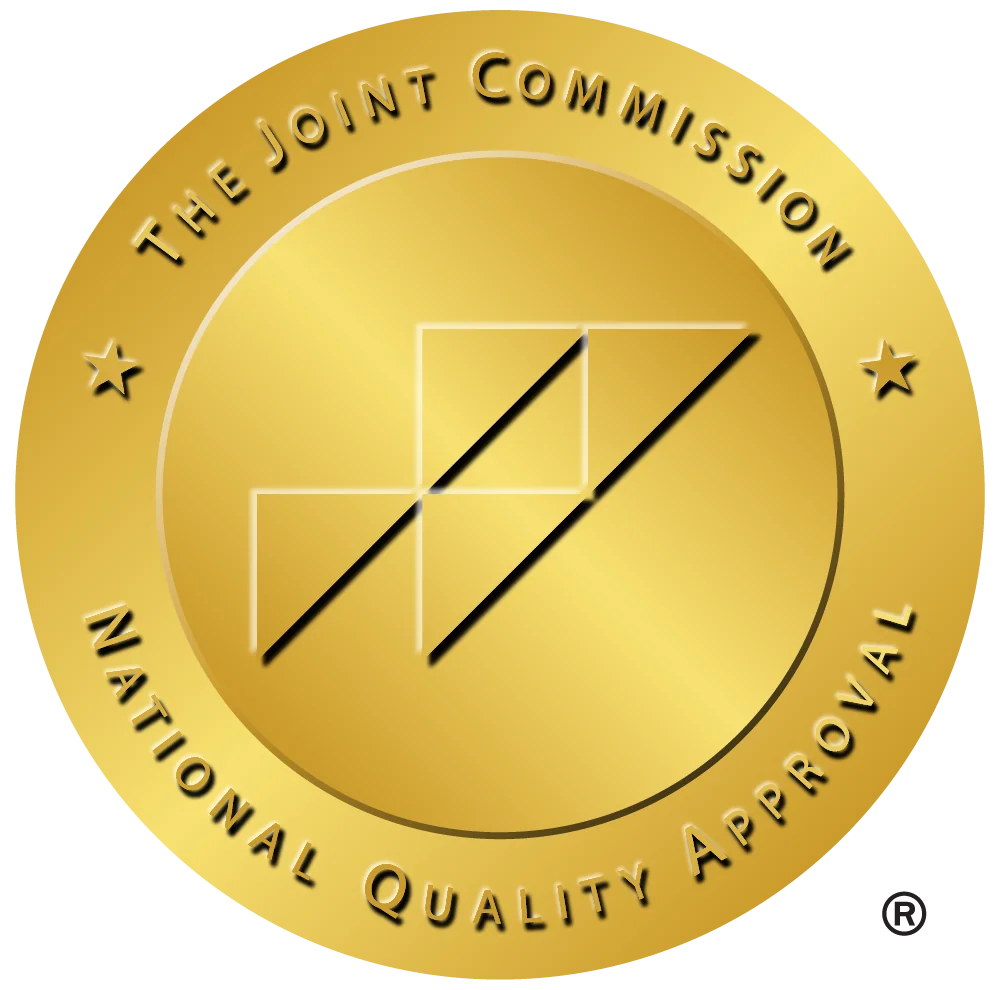The journey of alcohol recovery – one double diagnosis kind – is a transformative process that unfolds in well-defined stages. Each stage of the alcohol recovery timeline has unique challenges and triumphs, ranging from initial detoxification to long-term sobriety milestones. Understanding this timeline can empower individuals and families to make informed decisions, set realistic expectations, and foster an environment conducive to sustained recovery. Knowledge of these stages helps not only the individual in recovery but also those around them, offering a roadmap to navigate and support each phase.
In Denver, Colorado, Revive Health Recovery specializes in guiding individuals through each step of this process, providing personalized care that adapts to each person’s unique needs. This article breaks down the typical alcohol recovery timeline stages, key symptoms, and essential strategies for navigating this life-changing journey. By demystifying the recovery process, we aim to offer hope and clarity for those seeking to reclaim their lives from alcohol dependency.
Typical Alcohol Recovery Timeline Stages
The alcohol recovery timeline generally progresses through several phases, each with its own set of physical, emotional, and psychological milestones. Understanding these stages can help in setting achievable goals, accessing the right type of care, and identifying when additional support might be necessary.
Initial Detoxification Phase (0–7 Days)
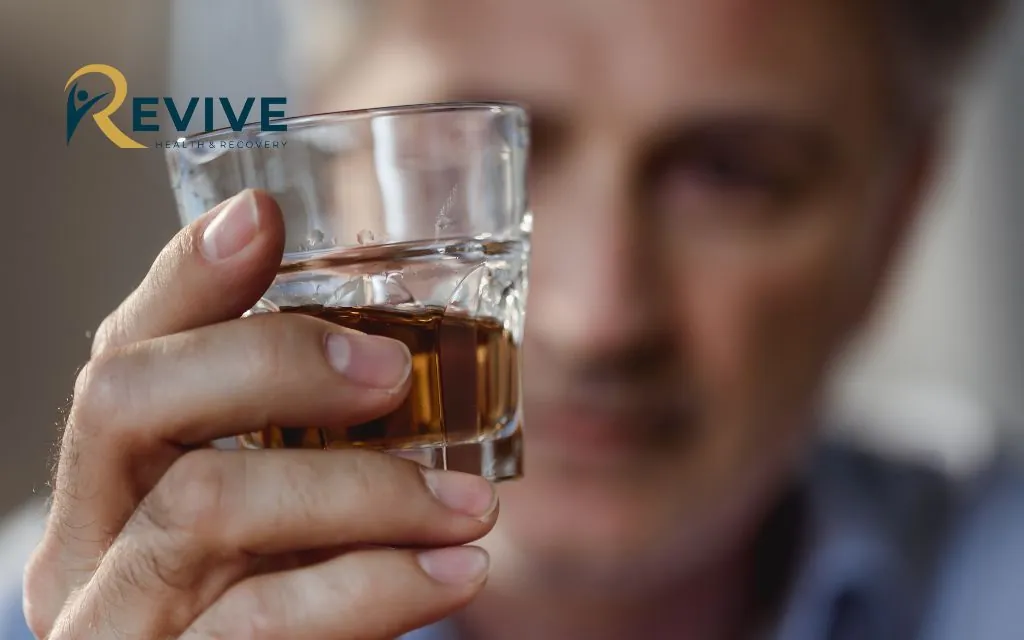
Detox Timeline and Acute Withdrawal Symptoms
The initial detoxification phase is a critical first step in the alcohol recovery timeline. This phase typically lasts from the first day of abstinence to approximately a week. During this period, individuals often experience a range of physical withdrawal symptoms, including tremors, nausea, headaches, and, in severe cases, delirium tremens (DTs). Symptoms can intensify depending on factors such as age, overall health, and history of alcohol use. Close monitoring and medical support are crucial, especially for individuals at risk of severe withdrawal symptoms, to ensure safety and comfort throughout the detox process.
Medical Interventions and Support Needs
Medical support during detox can make a significant difference in the recovery experience, especially in managing severe withdrawal symptoms. In facilities like Revive Health Recovery in Denver, personalized care is provided, which might include medications like benzodiazepines to mitigate anxiety and prevent seizures. The goal is to minimize discomfort and protect the individual from potential complications, making detox a safer and more manageable experience. Access to medical professionals during this phase can also provide emotional support, which is often essential in fostering a positive mindset for the journey ahead.
Post-Acute Withdrawal Phase (1 Week–1 Month)
Symptoms Beyond Detox
Once acute withdrawal symptoms subside, many individuals enter the post-acute withdrawal phase. This stage can last several weeks and is marked by lingering symptoms such as anxiety, sleep disturbances, mood swings, and difficulty concentrating. While these symptoms are generally less severe than those experienced during the initial detox phase, they can still pose challenges and increase the risk of relapse. Understanding the persistence of these symptoms can help individuals stay vigilant and maintain a strong support system.
Managing Psychological Withdrawal
The post-acute phase often requires a focus on psychological recovery and emotional stability. Coping mechanisms, such as mindfulness practices, counseling, and support groups, can be particularly helpful. Revive Health Recovery offers programs that address these mental health aspects, fostering resilience and helping individuals build a foundation for sobriety. Therapy and counseling during this period can provide strategies for managing triggers and maintaining motivation, which are crucial for long-term recovery.
Alcohol Detox Timeline and Symptoms
Detoxification from alcohol typically follows a predictable timeline, with specific symptoms surfacing at different intervals. Awareness of this timeline allows individuals and caregivers to prepare and seek appropriate support at each stage.
Day-by-Day Alcohol Detox Symptoms
Detox symptoms often begin within 6–12 hours of the last drink, with symptoms like tremors, nausea, and anxiety peaking within the first 24–72 hours. After this initial period, symptoms may gradually decline. Severe symptoms, such as hallucinations or DTs, generally occur within 48–72 hours and require immediate medical attention. Each person’s detox experience can vary, but understanding the general timeline can help in managing expectations and planning for support.
Physical and Mental Health Considerations During Detox
Detoxification is not only a physical process but also an emotional and psychological one. Physical symptoms like dehydration, sleep disturbances, and changes in appetite are common, and they can contribute to mood changes and mental health challenges. Detox programs, such as those provided by Revive Health Recovery in Denver, often include nutritional support and mental health counseling to address both the physical and emotional needs of the individual.
Short-Term vs. Long-Term Alcohol Recovery Timeline
The recovery timeline is often broken into short-term and long-term phases, with each period presenting distinct challenges and objectives. Understanding these differences can help in setting realistic goals for recovery and preventing relapse.
Early Recovery (1–3 Months)
Building Coping Skills and Establishing Routine
During early recovery, individuals work to build routines that support sobriety. Developing coping mechanisms, such as regular exercise, hobbies, and social support, plays a crucial role in maintaining motivation and avoiding high-risk situations. This phase is about restructuring daily life to reduce dependence on alcohol.
Avoiding Early Relapse
The risk of relapse can be high in early recovery as individuals adjust to life without alcohol. Strategies such as creating an action plan for managing cravings and identifying triggers are essential. Facilities like Revive Health Recovery provide relapse prevention education and ongoing support to help individuals navigate this sensitive phase.
Extended Recovery (3 Months–5 Years)
In extended recovery, the individual solidifies the habits and coping strategies developed earlier. This stage is a period of growth, marked by a greater sense of stability and confidence in living alcohol-free. Maintaining connections with support networks and continuing therapy as needed can further reduce the risk of relapse.
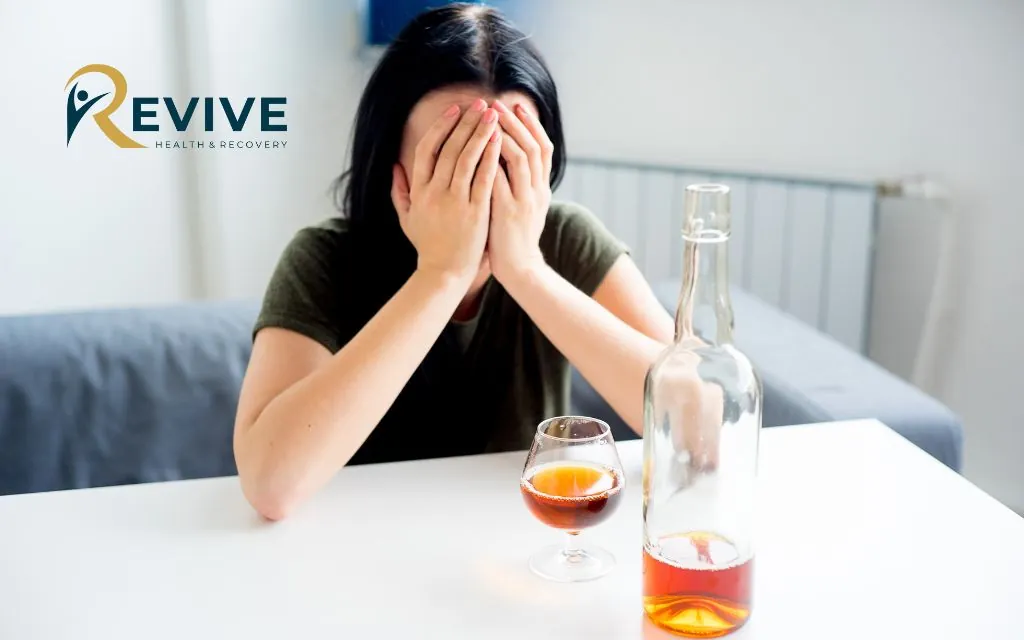
How Long is the Alcohol Detox Timeline?
The length of the alcohol detox timeline varies widely depending on individual factors such as the person’s level of dependence, physical health, and presence of other medical or mental health conditions. Typically, the most intense phase of detox lasts up to a week, but withdrawal symptoms may linger for weeks or even months in some cases.
Individual Variations in the Timeline
Alcohol detox can vary based on the severity and duration of the person’s alcohol use. For example, a person who has been drinking heavily for a prolonged period may experience more intense and prolonged withdrawal symptoms than someone with a shorter or less intense history. Physical health conditions, genetics, and support systems also impact the detox timeline, meaning each individual’s recovery experience can differ.
Strategies for Supporting Detox Completion
To improve the likelihood of completing the detox phase successfully, medical and therapeutic strategies play a vital role. At Revive Health Recovery in Denver, a personalized detox plan is crafted to provide comprehensive care, including medical supervision and psychological support. These strategies may involve medication to ease symptoms, nutritional support to promote physical recovery, and counseling to address the emotional aspects of withdrawal.
Average Alcohol Recovery Timeline for Relapse Prevention
Sustaining recovery after detox involves planning and recognizing milestones that are common in successful long-term sobriety. Relapse prevention is a critical component of this phase, and understanding the average recovery timeline helps to set realistic expectations for sustained progress.
Key Milestones for Relapse Prevention (3, 6, and 12 Months)
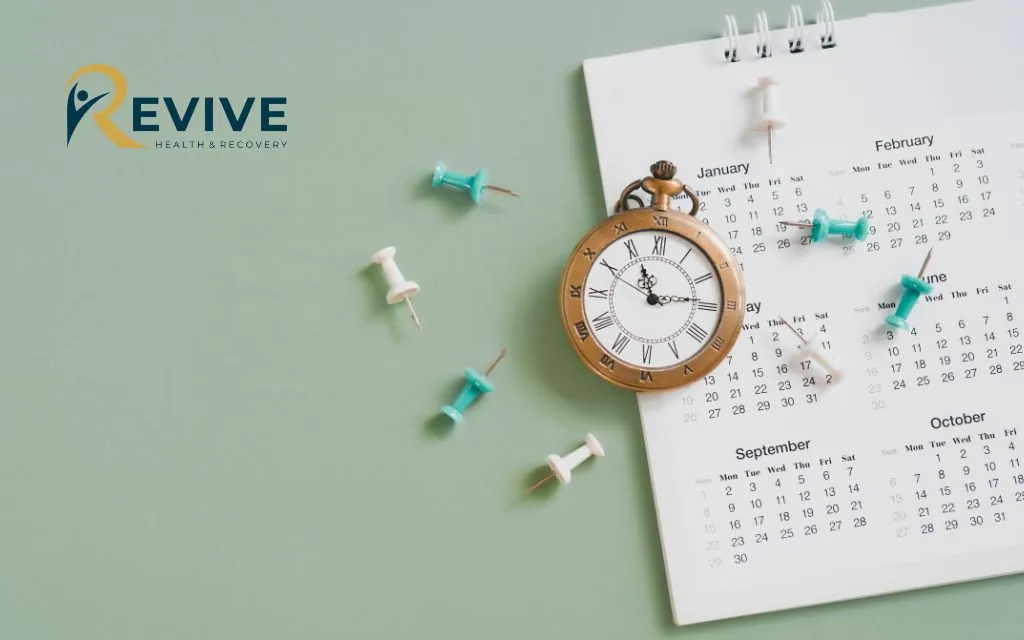
Alcohol recovery can be measured in several milestone stages that reflect typical patterns in sobriety and relapse prevention. For example:
- 3 Months: At this stage, individuals often begin to feel more stable and may have developed new routines, hobbies, or support networks.
- 6 Months: By this time, many in recovery experience increased confidence and stability in their sobriety, having overcome early cravings and withdrawal symptoms.
- 12 Months: Reaching the one-year mark is a significant achievement and often signals a higher likelihood of sustained sobriety, especially with continued support.
Tools and Therapy to Manage Triggers
In recovery, managing triggers effectively is essential for preventing relapse. Cognitive-behavioral therapy (CBT) is one approach used at Revive Health Recovery to help individuals identify and respond to triggers with healthier coping strategies. Therapy sessions may also include role-playing scenarios or practicing relaxation techniques to strengthen resilience against cravings.
Ongoing Support Network Building
A strong, supportive network is crucial in relapse prevention. This network may include family, friends, support groups, and professional counselors. Revive Health Recovery in Denver provides group therapy options and community connections to help individuals maintain meaningful relationships with others who understand the challenges of alcohol recovery.
Brain Recovery and Cognitive Rehabilitation Timeline
Alcohol addiction and prolonged heavy drinking significantly impact brain health, affecting both structure and function. While many individuals experience partial brain recovery with sustained sobriety, the timeline for cognitive rehabilitation can be lengthy and varies based on factors such as the extent of alcohol use, age, and overall health. During recovery, the brain undergoes a gradual healing process that restores some functions, while others may require therapeutic interventions.
Initial Cognitive Recovery (0–3 Months)
The early stages of brain recovery focus on addressing the acute cognitive impairments that result from alcohol dependence. In the first three months, the brain starts adjusting to the absence of alcohol, often marked by improvement in basic cognitive functions such as attention, working memory, and problem-solving. However, common withdrawal symptoms, including mood fluctuations, anxiety, and difficulty concentrating, can interfere with this process.
During this phase, Revive Health Recovery in Denver provides supportive therapies that can help individuals manage early cognitive challenges. These therapies might include mental exercises, memory activities, and brain stimulation exercises designed to aid in the stabilization of mental functions. Physical activity and nutrition are also crucial at this stage, as they help support brain function by promoting blood flow and providing essential nutrients.
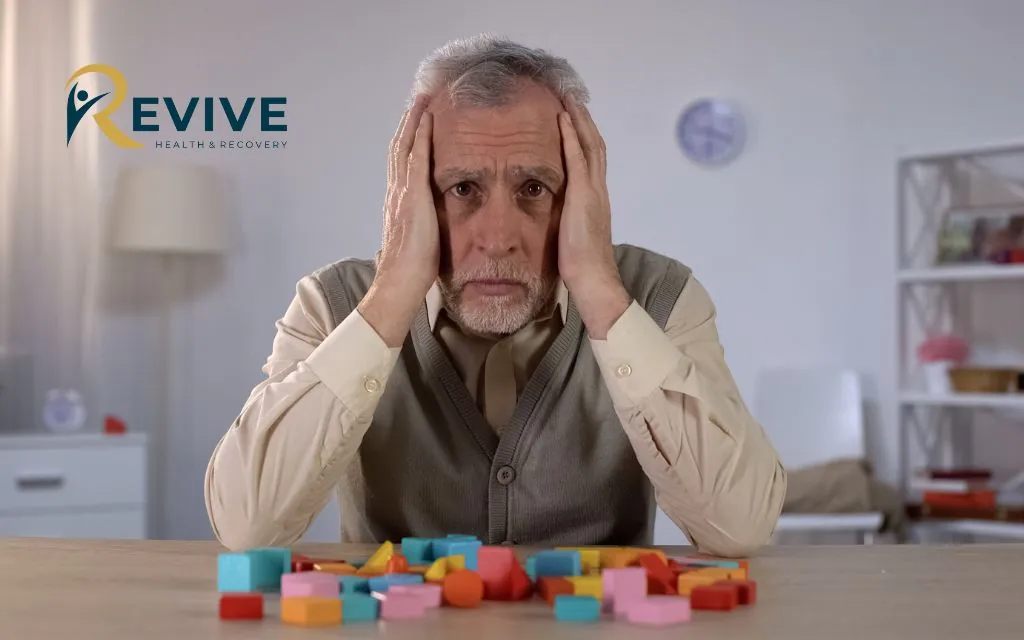
Intermediate Cognitive Recovery (3–6 Months)
At the three-to-six-month mark, the brain continues to show progress in healing damaged neural pathways. Neuroplasticity—the brain’s ability to reorganize itself and form new connections—plays a major role in this phase, enabling individuals to gradually regain more complex cognitive functions. Memory recall, reasoning abilities, and executive functions often improve, but they may still fluctuate as the brain adjusts.
Therapies during this period may shift to more intensive cognitive exercises and therapeutic sessions designed to enhance memory retention, focus, and emotional regulation. At Revive Health Recovery, cognitive rehabilitation programs during this phase involve neurocognitive testing and personalized exercises that align with the individual’s progress, aiming to optimize mental functioning as recovery progresses.
Long-Term Cognitive Rehabilitation (6 Months–2 Years)
Recovery of cognitive functions and brain health typically extends beyond six months and can continue for up to two years. During this period, individuals often experience more stable cognitive functions, although some long-term impairments in memory, emotional regulation, or processing speed may persist. For individuals with a history of prolonged or heavy alcohol use, full recovery might not be possible, but significant improvements are achievable.
Long-term rehabilitation focuses on building sustainable coping mechanisms and refining cognitive skills for daily life. Revive Health Recovery provides long-term support through individualized cognitive behavioral therapy (CBT), mindfulness practices, and problem-solving strategies to help individuals continue strengthening their brain health. Engaging in regular mental exercises, maintaining physical health, and staying involved in a supportive community are all essential aspects of this recovery stage.
Neurogenesis and Brain Structure Recovery
In addition to cognitive function, alcohol recovery impacts the structural integrity of the brain. Studies indicate that sustained abstinence from alcohol can lead to partial recovery in brain regions affected by heavy drinking, such as the hippocampus and prefrontal cortex, which play key roles in memory and decision-making.
Neurogenesis—the process of generating new neurons—occurs over time, especially with supportive lifestyle changes like a balanced diet, regular exercise, and therapeutic interventions.
The Role of Social and Emotional Support in Cognitive Recovery
Cognitive recovery is significantly influenced by a supportive environment that encourages mental well-being. Social connections and healthy relationships are proven to aid brain healing, as they stimulate positive emotional responses and cognitive engagement.
Revive Health Recovery in Denver emphasizes the role of community support and counseling, creating an environment where individuals can rebuild their lives with strengthened cognitive functions and improved mental health.
Conclusion
The alcohol recovery timeline consists of distinct stages, from initial detox to long-term relapse prevention, each with unique challenges and essential milestones. Understanding these phases helps in setting realistic expectations and making informed decisions about the best ways to support recovery. By following a structured recovery plan, engaging with medical and therapeutic professionals, and building a solid support network, individuals can navigate the complex journey of alcohol recovery successfully.
Revive Health Recovery in Denver, Colorado, specializes in offering personalized, compassionate care throughout each stage of recovery, providing both the tools and the supportive environment necessary to achieve lasting sobriety. With commitment and the right resources, the path to a healthier, alcohol-free life becomes achievable.
